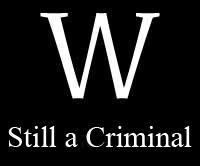Federal judge orders halt to NSA spy program
 The warrantless Internet and telephone surveillance program authorized by the Bush administration violates the U.S. Constitution and must cease immediately, a federal judge ruled Thursday. The landmark decision makes U.S. District Judge Anna Diggs Taylor in Detroit the first judge to strike down the National Security Agency’s once-secret program. The American Civil Liberties Union had filed suit against the government, claiming the program “ran roughshod” over the constitutional rights of millions of Americans and ran afoul of federal wiretapping law.
The warrantless Internet and telephone surveillance program authorized by the Bush administration violates the U.S. Constitution and must cease immediately, a federal judge ruled Thursday. The landmark decision makes U.S. District Judge Anna Diggs Taylor in Detroit the first judge to strike down the National Security Agency’s once-secret program. The American Civil Liberties Union had filed suit against the government, claiming the program “ran roughshod” over the constitutional rights of millions of Americans and ran afoul of federal wiretapping law.
Mystech: White House representatives calmly removed their headphones and set aside antennas long enough to comment that the decision came as “no surprise”, but they would appeal nonetheless.
In a sweeping victory for the ACLU and its clients, which included organizations representing criminal defense lawyers, journalists, Islamic-Americans, and academics, Taylor appears to knock down every major legal argument that the Bush administration has used to defend the program since it was revealed by The New York Times last December.
The terrorist surveillance program, she ruled, violates the First Amendment’s right to freedom of expression and the Fourth Amendment right to privacy–that is, freedom from unreasonable searches. It also ignores requirements of a 1978 electronic wiretapping law known as the Foreign Intelligence Surveillance Act (FISA) and represents an overstepping of presidential powers, Taylor wrote.
The judge also dismissed the government’s request that the suit be thrown out because of the “state secrets privilege,” which permits the government to suppress a lawsuit that might lead to the disclosure of military secrets.
“We are enormously gratified with the court’s historic ruling today,” ACLU Executive Director Anthony Romero said in a conference call with reporters. “At its core, today’s ruling addresses the abuse of presidential power and reaffirms a system of checks and balances that’s necessary in our democracy.”
U.S. Department of Justice representatives did not immediately respond to requests for comment. The government has, however, notified the ACLU of its intention to request a stay of Taylor’s opinion while it files an appeal, ACLU attorney Jameel Jaffer said during the conference call.
Clients defended by ACLU in the suit praised the district court’s decision, saying it would allow them to carry out their professional duties without fear of being spied upon.
New York University Professor Barney Rubin, a plaintiff in the case who has authored several books on Afghanistan, said the ruling gave him “greater confidence” that he would be able to conduct interviews with subjects located in the nation considered a state sponsor of terror without worrying his conversations would be scooped up by the NSA.
“I’m extremely relieved to know that this court believes in the right of our clients, who are all people accused of crimes, to the confidentiality that has long believed to be essential to the criminal justice system,” said Nancy Hollander, a New Mexico-based attorney who spoke on behalf of the National Association of Criminal Defense Lawyers.
It wasn’t immediately clear what impact the ruling will have on a number of other cases challenging the legality of the NSA program. On July 20, a federal judge in San Francisco dismissed the government’s assertion of the state secrets privilege and ruled that a case brought by the Electronic Frontier Foundation, a digital rights group, against AT&T could proceed–a move that the government readily appealed.
Five days later, however, a federal judge in Chicago granted the Justice Department’s request to throw out another suit related to the NSA program brought by the ACLU.
A number of congressional proposals also seek to broaden wiretapping law, essentially making the existing NSA program legal. One controversial bill endorsed by the Bush administration proposes moving all cases disputing electronic surveillance programs to a secret court.
The ACLU said it was confident that the constitutional arguments raised by Taylor’s opinion would prompt the politicians to rethink taking such steps. “Members of Congress have taken an oath to uphold the Constitution,” said ACLU Legislative Director Caroline Fredrickson, “and they’re going to have to take this decision very seriously.”
“Plaintiffs have prevailed, and the public interest is clear, in this matter. It is the upholding of our Constitution,” the judge wrote in her 44-page opinion (pdf).







I read parts of the judge’s ruling, and it had a strictly Constitutional basis. It was basically “This program is obviously unconstitutional, and this, this, and this is why”. I applaud her and hope that more judges will realize that both the Bush Administration’s interpretation of the powers of the Executive Branch, their invasive surveillance programs, and their denial of people’s right to a speedy trial are unconstitutional, and need to be struck down.
Can we impeach him yet? 🙂
Serously though, I can see this going on for quite a while, but I really am curious (and eager) to see if we’ll actually impeach a president who violates the Constitution instead of just harassing adulterers. 🙁
Glad to see one branch of the government standing up for our basic ideals.
Yeah, with Herr Bush now acting in the capacity of Executive AND Legistlative (basically rewriting laws once they reach his desk), I’m grateful the Judicial branch as a whole is not yet totally under his sway. Of course, this exclude the Department of So-Called Justice which spendws the better part of it’s day with its lips firmly planted on the presidential backside.